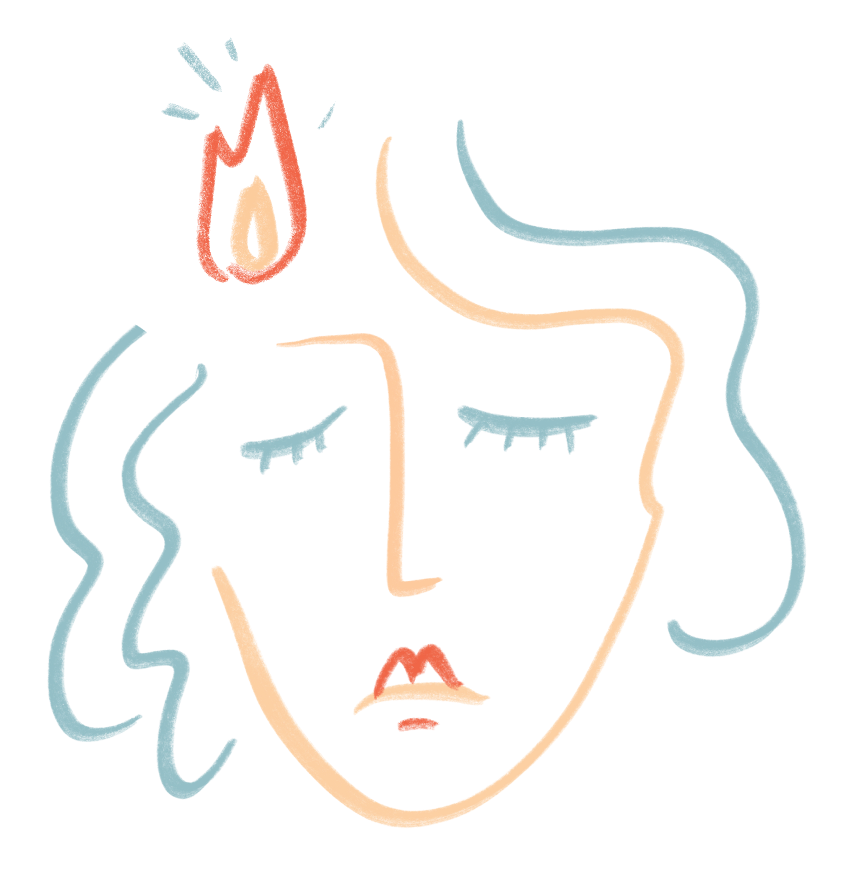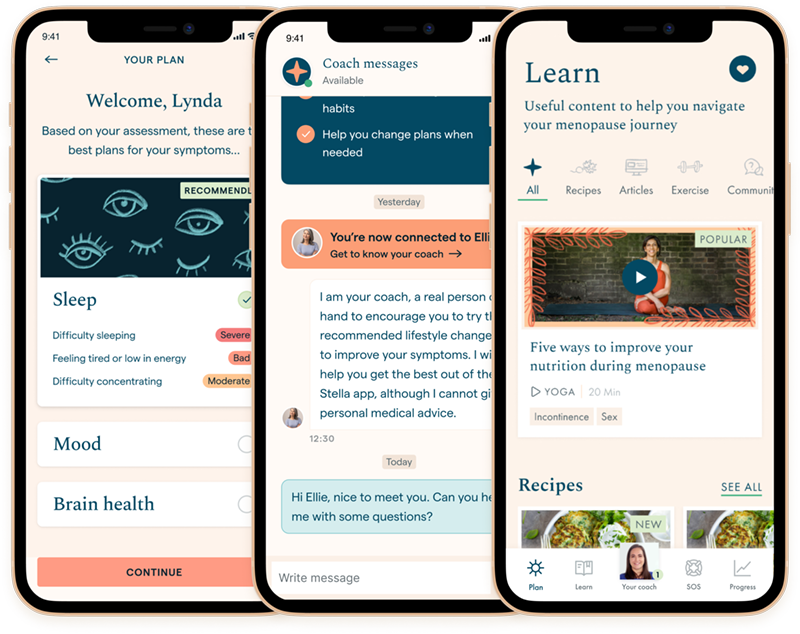Panic attack definition
A panic attack is generally defined as a sudden episode of intense fear that triggers severe reactions in your body, also known as physiological reactions when there is no real danger or apparent cause.
Panic attacks are extremely frightening and can feel like you’re having a heart attack or even dying. Although panic attacks aren’t life-threatening, they can significantly affect your quality of life. They can make you feel anxious, fatigued and low.
Discover your personalized treatment options

How likely are panic attacks in perimenopause?
- 1 in 4 experience anxiety symptoms during menopause, including panic attacks
- Many experience a panic attack for the first time in their life during menopause
Read more about the stages of menopause.
Signs of a panic attack
During a panic attack, you get an intense rush of mental and physical symptoms. It can come on very quickly without warning. They can sometimes be triggered for no immediately apparent reason, which can be very distressing. Symptoms can include:
- A racing heartbeat
- Feeling faint
- A feeling of dread, doom or as if you are dying
- Sweating
- Nausea
- Chest pain
- Shortness of breath
- Trembling
- Hot flushes
- Chills
- Shaky limbs
- A choking sensation
- Dizziness
- Numbness or pins and needles
- Dry mouth
- A need to go to the bathroom
- Ringing in your ears
- A churning stomach
- A tingling in your fingers
- Feeling like you’re not connected to your body
What does a panic attack feel like?
Panic attacks are intense, overwhelming, and terrifying. It can start with a total loss of control of breathing and crying. You might desperately gasp for air, cry, and feel like you are choking. You may experience waves of nausea with a desire to be violently sick. Your heart can pound so quickly that you may worry you are having a heart attack or dying.
It is scary when you feel you are not in control, hear yourself making weird noises or feel your heart hammering. Getting yourself back under control is a real challenge while you are in a heightened state of anxiety and fear. Most panic attacks last between five and 20 minutes, although some have been reported to last up to an hour.
Afterwards, you can feel vulnerable and fragile, as well as embarrassed if it has happened in a public place or in front of people. It takes a while to return to a more normal state.
Be aware that most of these symptoms can also relate to other conditions or problems. You may not always be experiencing a panic attack when these symptoms occur. For example, a racing heartbeat can mean you have an abnormal heart rhythm. It is important to see a healthcare provider so a careful diagnosis can be made.
HOW TO STOP A PANIC ATTACK
Several techniques can help manage and prevent panic attacks:
1. Breathing. If you start to feel one coming on, focus hard on slow breathing. Try counting to four as you breathe in and then to four as you breathe out.
2. Acceptance. If you’ve had one before, you know what’s happening to you and you can comfort yourself knowing that it will pass.
3. Relaxation. Try mindfulness to help the attack pass. The Stella app has many guided meditations and soundscapes to help you.
4. Focus. You could try closing your eyes and imagining a place with happy memories or practice aromatherapy by smelling a calming yet powerful scent, such as a lavender spray.
5. Lifestyle choices
- It may seem obvious but reducing your stress levels is important, even if it is not easy. Try and identify specific stress sources, such as your job or relationships
- What you eat and drink can also add to your stress levels – reducing caffeine, nicotine (smoking and vaping) alcohol, will help
- Get enough exercise, even walking can help
6. Therapy. Talk to your healthcare provider about cognitive behavioral therapy (CBT).
Panic attacks and menopause FAQs
When an attack happens, my body feels light and I can see myself from above. I feel like I am disintegrating and physically gone”





